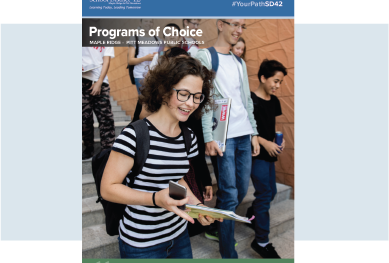The Montessori method is based on observing and supporting the natural development of children. Montessori focuses on the whole child, developing each student’s sense of self and others through interest and choice. This hands-on, multi-sensory program engages students in all areas, with the ultimate goal of developing global citizens.
Montessori
Multi-aged classrooms are an important part of the Montessori program and are vital in developing independence and confidence.
Students learn at their own pace, motivate each other and often become teachers to their peers. Children assume responsibility for their learning and for their environment. Each Montessori classroom is equipped with specialized materials, specifically designed to be self-correcting and progressive.
Montessori program teachers are provincially certified educators who also have specialized training in the Montessori method. During this training, teachers learn how to use the Montessori materials, prepare the classroom environment, and use daily observations as an assessment tool. The teacher is the guide in the classroom, encouraging students to assume responsibility for their own learning.
Multi-aged groupings are an integral part of the Montessori classroom. Students develop a sense of ownership and responsibility for the classroom that they are often in for a period of two to three years. Multi-aged groupings provide opportunities for leadership and mentoring.
Each child develops at their own pace using the various progressive Montessori materials. All levels of learning are accommodated and supported by hands-on activities that increase in difficulty. Student are encouraged to follow their interests, based on their ability and previous presentations. The Montessori environment provides a stimulating, challenging educational experience that appeals to all students, regardless of what level they are at. Additional help, in the form of learning assistance or support, is available if needed.
Each Montessori classroom is a special community of students. From an early age, Montessori students develop a sense of community and social awareness as they interact with their peers and the environment. Acceptance and respect are important in the development of friendships and ultimately world peace, which was Maria Montessori’s overarching goal.
British Columbia has recently introduced a redesigned curriculum. This new curriculum is very similar to the Montessori method, emphasising the need to follow each student’s interests and provide choice in the classroom.
The new curriculum and the Montessori learning areas both cover mathematics, language arts, geography and social studies, fine arts and physical education. Music and drama are also included in the new curriculum and Montessori.
Provincial regulations require that parents be provided with a minimum of three formal written reports and two parent/ student/teacher conferences per year. Reporting is centred on the core competencies: personal awareness and responsibility, communication, and creative and critical thinking.
Montessori information nights are hosted annually and typically occur in January or February. These information nights are posted on the front page of the district website under Announcements and Upcoming Events as details become available.
For more information about the Montessori program, please contact Adam Stanley, principal at Hammond Elementary, at 604.460.1136 or email adam_stanley@sd42.ca.


